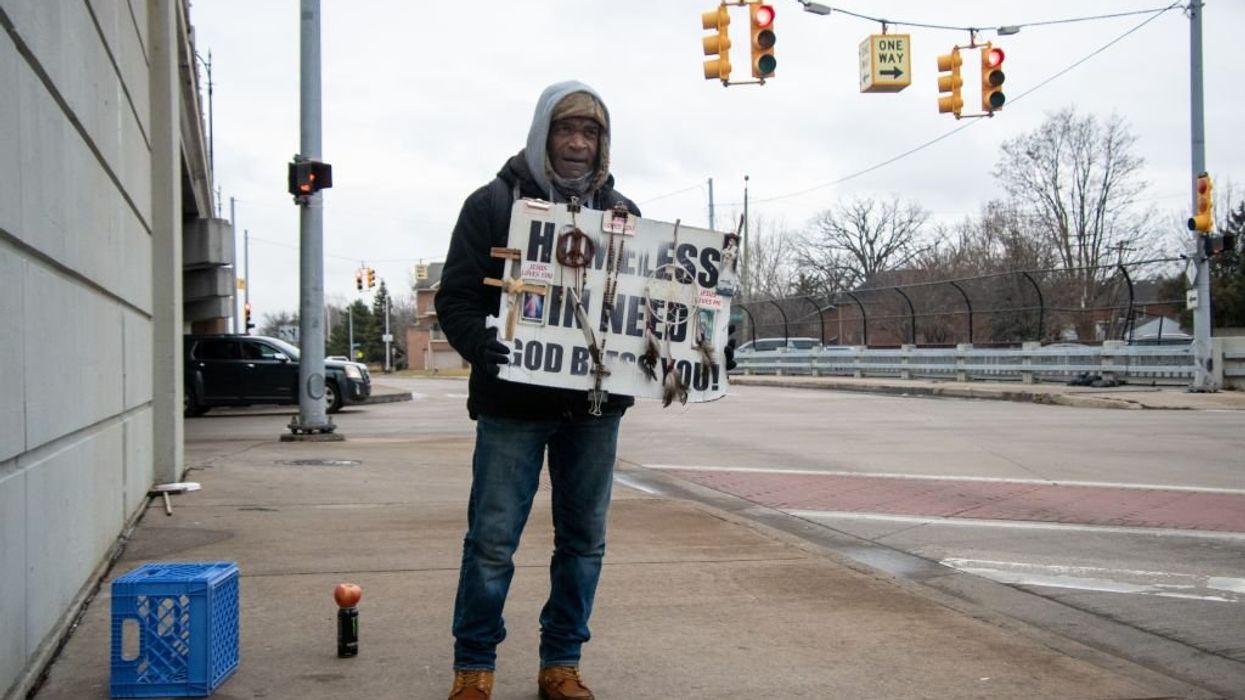© 2024 Blaze Media LLC. All rights reserved.
"They didn't want to take a test sitting next to someone who might be carrying a gun."
AUSTIN, Texas (AP) — Two months ago, Texas looked ready to allow concealed handguns in college classrooms. Lawmakers lined up to sponsor a bill, pistol-packing Gov. Rick Perry supported it and gun control activists had all but conceded defeat.
Then students and administrators from the state's universities mobilized in opposition, swaying two Democratic lawmakers who had supported the bill.
Without them, the bill's sponsor hasn't had enough support to get a vote in the state Senate. Two attempts in the past week have failed, and the measure is now struggling to survive in a state that usually embraces guns and their mythical connection to the old West.
The effort to allow concealed handgun license holders to bring their weapons into college classrooms turned into a national issue after a gunman killed 32 people at Virginia Tech in 2007, the largest mass shooting in modern U.S. history. Supporters said they wanted to give students a chance to shoot back.
But dozens of states — including Texas — rejected bills allowing concealed carry on campuses before Republicans swept elections in November and gave the measures new life. Arizona recently passed a bill allowing license holders to carry handguns on campuses, although not in classrooms.
Still, for supporters like the national group Students for Concealed Carry on Campus, Texas remains the big prize. Early signs the bill would pass there captured the attention of the international media, which could not resist the state's larger-than-life reputation and frontier image.
Texas is where concealed handgun license holders are allowed to skip metal detectors in the state Capitol, and Perry made headlines for shooting a coyote while out on a morning jog last year. State lawmakers are now considering a bill that would exempt them from bans on carrying guns into churches, sporting events and nursing homes.
Hearings on the measure were dominated by powerful testimony from supporters who had been raped or assaulted on campus and by opponents who survived the shootings at Virginia Tech and the University of Texas in 1966, when sniper Charles Whitman killed or wounded dozens of people.
Hundreds of current students turned out for Capitol rallies, saying they didn't want to take a test sitting next to someone who might be carrying a gun.
They got a big boost from the nine-campus University of Texas System when chancellor Francisco Cigarroa wrote a letter to Perry and lawmakers telling them college officials worry guns will lead to more campus violence and suicides.
Two Democrats who had supported the bill, Sen. Eddie Lucio of Brownsville and Sen. Mario Gallegos of Houston, withdrew their support last week.
Gallegos, whose district includes the University of Houston, said he has been swamped with "thousands" of calls over the past week from students and parents who oppose the bill. He said he also heard from college officials complaining they will face sharp increases in liability insurance.
"I lost sleep over this," Gallegos said. "I've come to that reality with my community: They don't want guns on campus."
Lucio withdrew his support last week, accusing bill sponsor Sen. Jeff Wentworth of going back on a promise to give him more time to talk with officials at UT-Brownsville in his district. The university wants to exempt college campuses that have grade schools, a change Wentworth said he won't accept.
Senate rules require a bill to have the support of 21 senators in the 31-member chamber just to come up for a vote. Without the two Democrats, Wentworth is at least one vote short, but he vowed Tuesday to be aggressive in trying to pass the bill.
The slim margin has set up the likelihood of political gamesmanship over the next few weeks. The 21-vote rule is really a two-thirds rule. If Wentworth sees opponents are out sick or attending business outside of the chamber and the numbers are in his favor, he could try to call it up for a vote without warning.
"I'm here," Wentworth warned. "All the time."
Want to leave a tip?
We answer to you. Help keep our content free of advertisers and big tech censorship by leaving a tip today.
Want to join the conversation?
Already a subscriber?
more stories
Sign up for the Blaze newsletter
By signing up, you agree to our Privacy Policy and Terms of Use, and agree to receive content that may sometimes include advertisements. You may opt out at any time.
© 2024 Blaze Media LLC. All rights reserved.
Get the stories that matter most delivered directly to your inbox.
By signing up, you agree to our Privacy Policy and Terms of Use, and agree to receive content that may sometimes include advertisements. You may opt out at any time.


